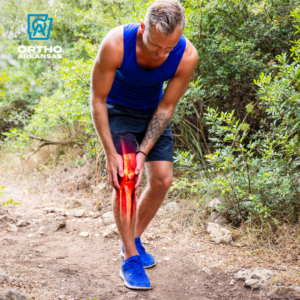Take care of your bones, and they’ll take care of you.
Our bones are amazingly complex structures that do so much for us. So it is not surprising that the causes that lead to poor bone health and osteoporosis are just as complex. The key to better health is understanding our bodies so we can take better care of them.
Our diet, our age, and even our mental state has a combined effect on our overall health. Let’s learn more about how you can keep those bones healthy and strong!
How diet and exercise affects bones
Our diet affects so many aspects of our health, but a balanced diet does a double-whammy to prevent heart disease, fight inflammation and nourish bones. Likewise, exercise — or a lack thereof — causes changes in bone density. When you engage in daily low-impact exercise, such as walking, bones stay dense and strong. That is important because denser bones are less susceptible to stress fractures or breaks and developing osteoporosis as we age.
How age affects bones
As we age, our bones become more brittle. This is due to a decrease in the production of the hormones that regulate osteoblasts (the cells that form new bone) and osteoclasts (the cells that break down old bone). Additionally, age-related conditions such as osteoporosis further weakens bones, increasing the risk of injury.
How stress affects bones
When we are experiencing stressful situations, our bodies naturally make temporary changes until the episode has passed. But if we stay constantly under stress our bodies stay in high-alert mode leading to an overproduction of cortisol.
Elevated cortisol levels have an effect on the whole body and are linked to chronic inflammatory diseases commonly associated with bone loss and osteoporosis. Too much stress also manifests in the all-too-common symptom of tension in the neck and .
Take steps toward better bone health
Now that you have a deeper understanding of the various things that play a part in bone health, let’s take a look at the many ways to take better care of our bones.
Better bones at any age.
- Eat a balanced diet. A healthy diet with plenty of calcium, vitamin D, and other essential nutrients can help to keep your bones strong and healthy. This means more fish, nuts and dark leafy greens and less processed meat and overly sugary or salty food.
- Stay hydrated. Staying hydrated helps keep bones strong by delivering nutrients and providing lubrication, which can prevent them from becoming brittle and prone to fractures.
- Have a game plan for stress. Create a plan to handle stressful moments. Watch caffeine intake, stay active, take a moment to breathe or phone a friend for a quick chat. Everyone’s strategy to destress is different. Just do whatever it is that recharges you.
- Keep moving. Regular, low-impact physical activity, such as walking daily, does our bones good by keeping them strong. The key is to simply add more movement to your routine in a way that fits your abilities.
- Don’t ignore what your body tells you. Pay attention to discomfort or changes in your body or mobility. Pain is the body’s way of communicating. When discomfort does not subside or worsens, it may be time to seek expert help.














